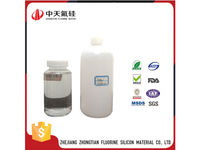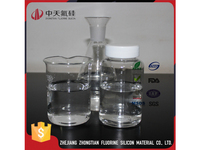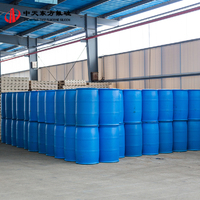Silicone Fluid20
Product Quick Detail
- FOB Price
- USD $10.00 / Piece
- Minimum Order
- 1
- Place Of Origin
- china
- Packaging
- N/A
- Delivery
- 15 Days
Specifications
Advantages and Disadvantages of Silicone Fluid
Advantages
(1) The viscosity and temperature performance is the best among liquid lubricants, and the viscosity changes little in wide temperature range. Its freezing point is generally less than -50℃, some
are as high as -70℃, and its oil appearance and viscosity do not change when stored for a long time at low temperature, it is a base oil that can take into account high temperature, low temperature
and wide temperature range.
(2) Excellent thermal oxidation stability, such as thermal decomposition temperature >300℃, small evaporation loss (150℃, 30 days, evaporation loss is only 2%), oxidation test (200℃, 72h), small
changes in viscosity and acid value.
(3) excellent electrical insulation, volume resistance, etc. does not change in the range of room temperature ~ 130 ℃ (but the oil can not contain water).
(4) It is a non-toxic and low foaming, strong anti-foaming oil, can be used as antifoaming agent, etc.
(5) Excellent shear stability, has the function of absorbing vibration and preventing vibration transmission, and can be used as vibration damping fluid.
Disadvantages
(1) The lubricity of silicone oil is not good, especially for the poor lubrication of the steel friction side.
(2) The coefficient of thermal expansion of silicone oil is large (may produce overpressure problem).
(3) Large gas solubility (difficult to design gas sealing device).
(4) A certain degree of hygroscopicity (after the water content is higher than 100×10-6, the electrical performance drops sharply).
(5) Small surface tension (easy to leak from the machine).
Packaging and Storage of Hydrogen Silicone Oil
Hydrogen silicone oil should avoid contact with alkaline substances, acid-proof, moisture-proof, stored in a cool and dry place, the storage period of more than one year. Over the period it can be
retested if it is standard qualified, hydrogen silicone oil can still be used. Hydrogen silicone oil is the non-dangerous product.
- Country: China (Mainland)
- Founded Year: 2006
- Address: No.20 Huayin North Road, High-tech Industrial Park, Quzhou, Zhejiang,China
- Contact: Doris Cheng






